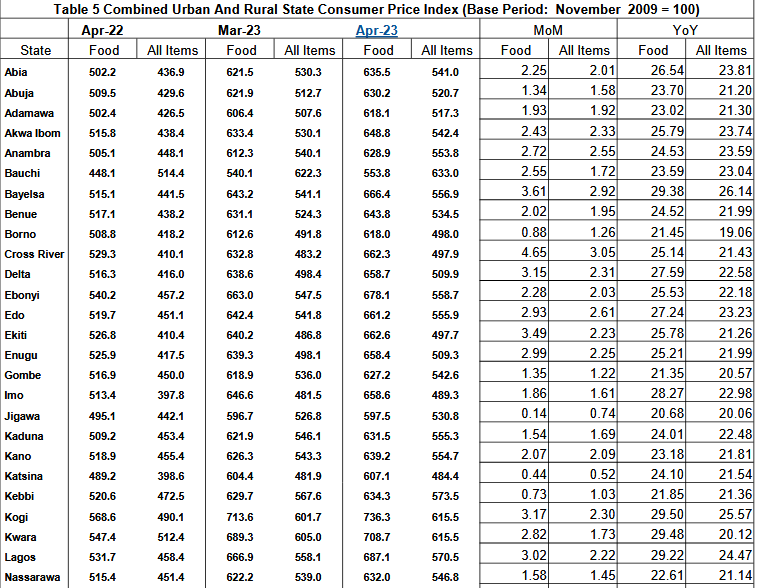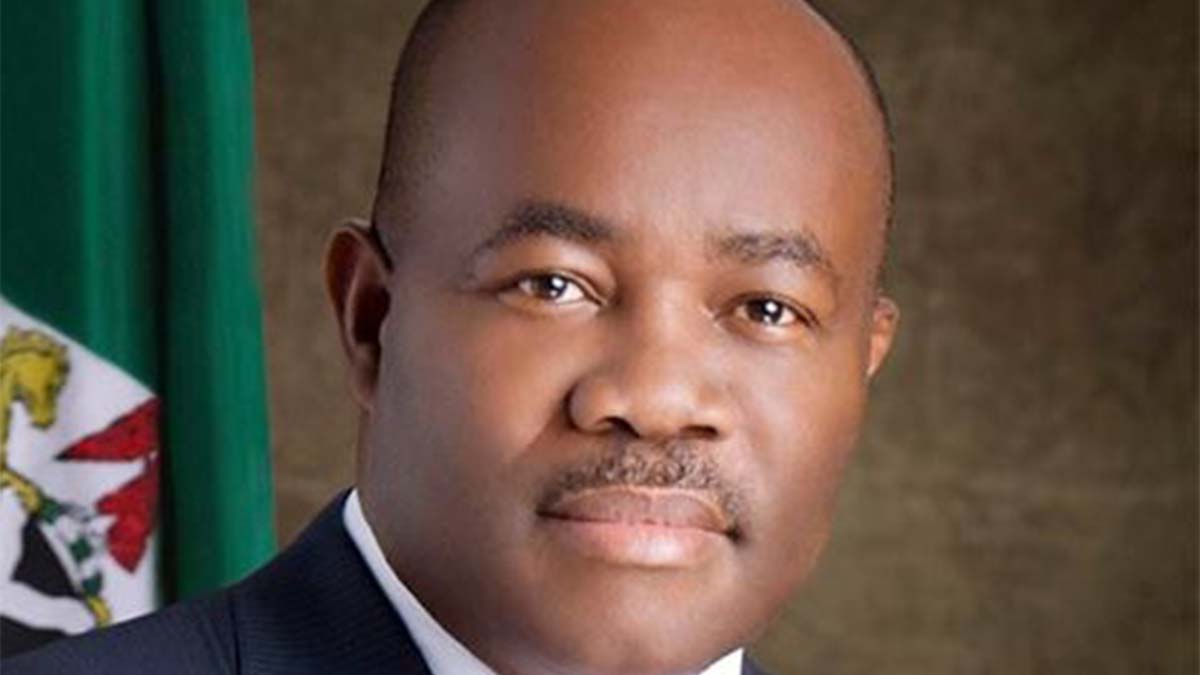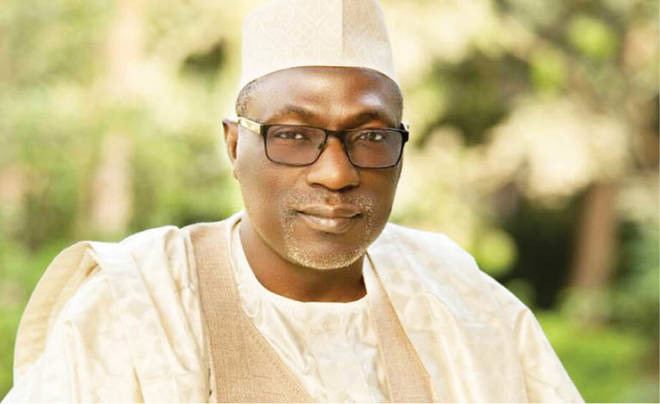2023: Food inflation highest in Kogi State

Key points
-
Kogi ranked highest in food inflation in April 2023 according to NBS data;
-
Second highest in all items inflation rate nationally
-
An agriculture belt yet, Kogi is low in food production
-
Most food consumed in the state comes from Benue State
-
Movement of people in and out of Kogi State impact on prices of food
-
Food inflation is on a steady rise nationally
-
Petrol price is a key trigger of inflation in our country
-
The removal of subsidy has given birth to another level of inflation
-
If we begin to produce our own fuel, we will no longer be affected by the international prices of these products
By Daniel Adaji
Kogi State, it has been revealed, ranked highest in food inflation and 2nd in Nigeria all items inflation rate as at April, 2023.
The ratings, which are contained in Nigeria Bureau of Statistics (NBS) report released in April 2023, also indicated that the Nigeria all items inflation rate had risen to 22.22%. This occurred barely few days to the end of the President Buhari-led administration.
According to the reports, while Bayelsa State ranks highest with 26.14% in all items inflation rate, Kogi State ranks highest with 29.50% in food inflation. The Insight reports that Kogi food inflation rating was 26.08% in August 2022 according to NBS data, while Kwara which recorded the highest rating has been displaced to the second position in 2023 by the confluence state.
According to investigations by The Insight, the Yahaya Bello-governed state has maintained a steady rise in food inflation for some years now, especially between 2022 and 2023, with food inflation rate hitting a 3.36% increase.
Kogi, an agrarian state, should be able to easily produce her own food and gain reputation as Nigeria’s food hub. But now, the reverse is the case, with residents lamenting increased food inflation and cost in the state.Abdulkareem Lawal, a resident in the state capital, Lokoja, lamented that cost of food in the state had been very high.
“Food in Lokoja is very expensive and getting money here to buy is not easy,” he said.
Another resident in Anyigba, Amana Matthew complained that the cost of food in the town is also expensive, especially due to the students population.
“The demand for food is high and the cost increases astronomically because people don’t produce so much food items here. The demand is high as a result of the Prince Abubakar Audu University campus community. The cost of buying any food item is expensive here,” he said.
Though the inflation in Kogi is higher than other states, it may not be significantly higher
Consumer Price Index measures the average change over time in the prices of goods and services consumed by people for day-to-day living.
According to the report: “In April 2023, the headline inflation rate rose to 22.22% relative to March 2023 headline inflation rate which was 22.04%. Looking at the movement, the April 2023 inflation rate showed an increase of 0.18% points when compared to March 2023headline inflation rate.”
Similarly, on a year-on-year basis, the headline inflation rate was 5.40% higher, compared to the rate recorded in April 2022, which was 16.82%. This shows that the headline inflation rate on a year-on-year basis increased in April 2023 when compared to the same month in the preceding year (i.e., April 2022).
The percentage change in the average CPI for the 12 months ending April 2023 over the average of the CPI for the previous months was 20.82%, showing a 4.37% increase, compared to the 16.45% recorded in April 2022.
The scenario is the same in both urban and rural areas. As the urban inflation rate is rising, the rural areas in the country, too, are not left out.
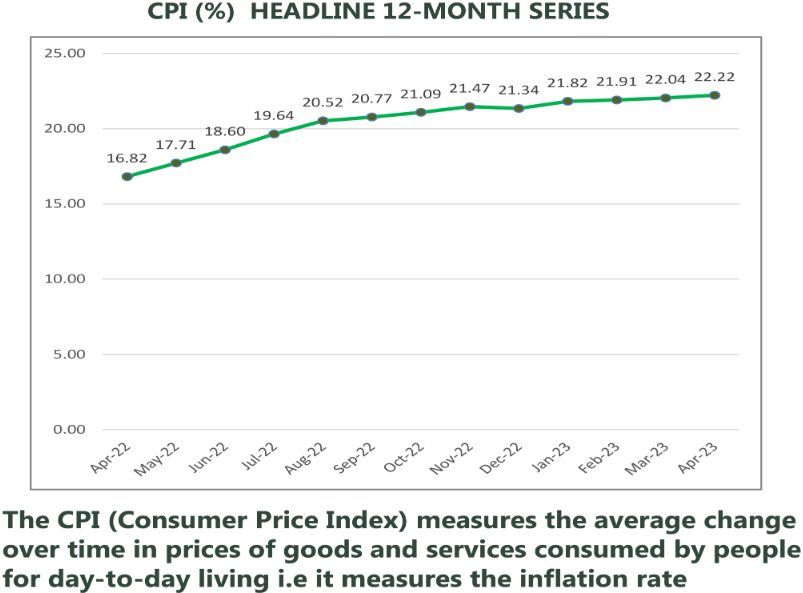
Source: NBS
In April 2023, The Insight gathered, urban inflation rate was 23.39% which is a 6.05% increase, compared to the previous year which was 17.35%.
Similarly, the rural inflation rate in the same month stood at 21.14%, an increase of 4.82%, compared to the previous rate.
Obviously, food inflation is on a steady rise. Nationally, the food inflation rate in April 2023 was 24.61%, compared to the rate recorded in April 2022 which stood at 18.37%.
NBS reported that the rise in food inflation on a year-on-year basis was caused by increase in prices of oil and gas, bread and cereals, fish, potatoes, yams and other tubers, fruits, meat, vegetables and spirits.
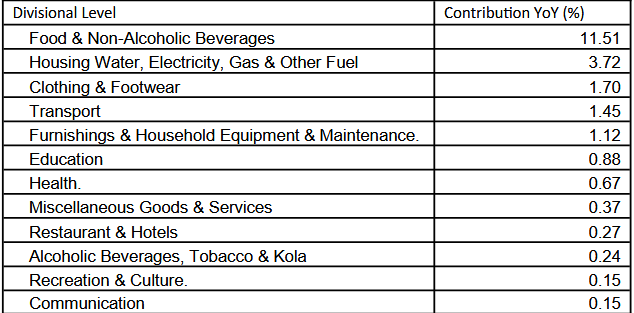
Source: NBS
Inflation rates in states in April 2023 and items inflation rate on a year-on-year basis were highest in Bayelsa (26.14%), Kogi (25.57%). Rivers (24.95%), Borno (19.06%), Taraba (19.64%) and Sokoto (19.90%) recorded the slowest rise in headline inflation on a year-on-year basis.
On a month-on-month basis, however, April 2023 recorded the highest increases in Cross River (3.05%), Bayelsa (2.92%) and Rivers (2.62%), while Katsina (0.52%), Jigawa (0.74%) and Osun (0.96%) recorded the slowest rise on month-on-month inflation.
Food inflation by states in April 2023:
Food inflation on a year-on-year basis was highest in Kogi (29.50%), Kwara(29.48%), and Bayelsa (29.38%), while Sokoto (19.55%), Taraba (20.20%) and Jigawa(20.68%) recorded the slowest rise in food inflation on a year-on-year basis.
On a month-on-month basis, however, April 2023 food inflation was highest in Cross River (4.65%), Bayelsa (3.61%), and Ekiti (3.49%), while Jigawa (0.14%), Katsina (0.44%) and Osun (0.62%) recorded the slowest rise in food inflation on a month-on-month basis.
Source: NBS
While explaining why food inflation has been on the increase in Kogi State, a renowned agricultural economist, Dr. Onuche Unekwu, of the University of Africa, Bayelsa State, noted: “Though the inflation in Kogi is higher than other states, it may not be significantly higher. The state is in the agricultural belt, but we cannot say agricultural production in Kogi is on the high side. In Ayingba for instance, most of the yams we eat come from Benue. Aside the level of production, the more you produce, the more you supply and then, the less in price.”
“Kogi State is in a transition belt bordering nine states and the Federal Capital Territory. People move through the state and when they do so, whatever they are buying could impact the demand and supply. That is a possibility for high inflation rate,” he added.
Petrol price influences inflation rate in Nigeria:
The don further noted that prices of petrol induces inflation rate in the country. “Just like the normal things that cause inflation in the country, in this case we are not looking at too much money in circulation, we are looking at cost- induced inflation; talk of exchange rate which is difficult to come by and costly, it touches on production cost and makes costd to increase. As prices of Premium Motor Spirit PMS (petrol) increases, cost of production will increase and that will reflect in inflation. That is the general situation of inflation in the country.”
“PMS is a key trigger of inflation in our country. There is food inflation we know but if supply of food to the market increases, it would act as a moderator to PMS price- induced inflation. So the inflation in the country which is being determined by the price of fuel would now be at the mercy of international fuel price. If the price of fuel at the international market is not stable and begins to increase, our inflation will also increase. Everything depends on macro economic management,” he said.
PMS is a key trigger of inflation in our country
Inflation rate not likely to reduce any moment soon
On whether inflation would reduce soon or not, Dr. Onuche said: “The removal of subsidy has given birth to another level of inflation. That would fairly stabilize for a while. Note that subsidy has always been about asking fuel stations not to sell more than an amount to people because the government would make up the difference. The amount in difference is not a constant figure, it is a figure determined by international price of PMS. Even if the price increases by double, government would pay the cost while asking fuel stations to maintain prices to the citizens,”he said.
“There are possibilities that in the next few weeks or months, the government may increase minimum wage. But the increase comes with its own inducement of prices because the ‘Nigerianness’ would like to take advantage of the increase. That would give birth to another round of inflation,” he noted.
Dr. Oncuhe added: “Whether the wage increase-induced inflation would be stable or not depends on how the government decides to manage the macroeconomic indices like exchange rates and how the buffer from the oil subsidy is managed and whether Dangote refinery kicks off and begins to stabilize the economy otherwise, beating inflation so soon would be difficult,” he said.
How government should keep inflation down
While advising the government on how to keep inflation down, the academic icon said: “If we begin to produce our own fuel, we will no longer be affected by the international prices of these products. Another thing that leads to inflation is the problem of high cost of inputs. Government needs to monitor inputs movement in and out of the country. The government should also address the issue of insecurity in the country,” he said.
Read also….. Inflation high in debt ridden Kogi State
The Insight Report
Nigeria Coverage

